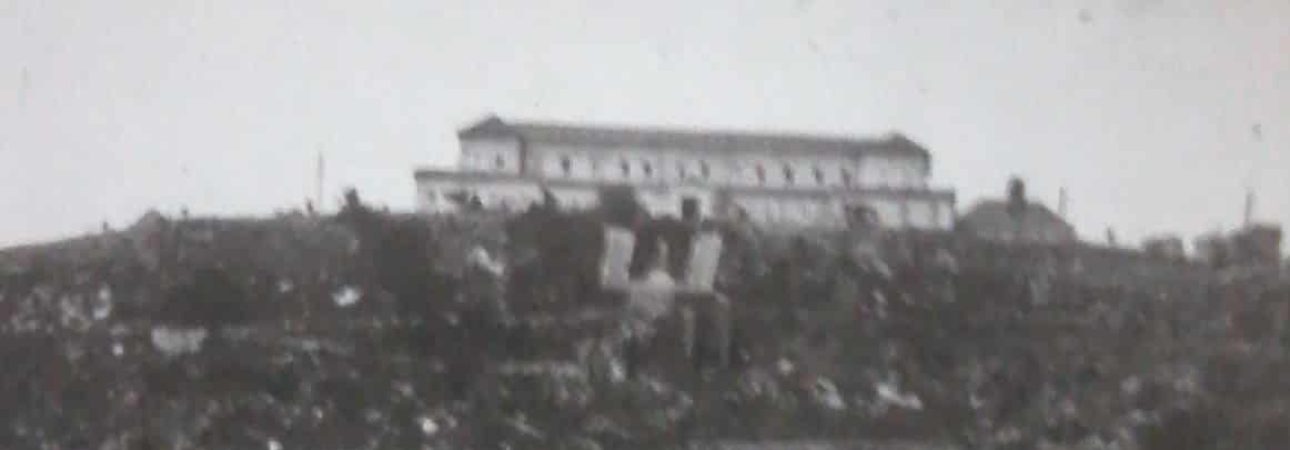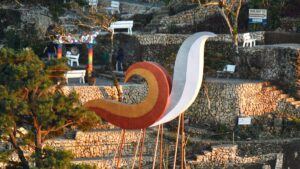There have been four stages in its life.
It began a meteorological observatory, with Jesuit scientists puttering about measuring rainfalls, observing winds, recording the shiverings of the earth, quietly, patiently opening windows into the secret heart of the physical universe.
Then it became a villa house, where Jesuit teachers — in the happy days before summer schools — rested from the labors of the year. They played ball. They prayed to God. They read books and argued about them endlessly, opening windows to the world of ideas and the world of men.
After the Pacific War, when Mainland China was closed to the Gospel, this House became a scholasticate, a house of studies for the young Jesuits of the Far East Province. In these lecture rooms, along these corridors, they followed the progress of Christianity from Pentecost to Paul VI, opening windows into the life and meaning of the Church.
Today, Mirador has acquired other uses. It is no longer a scholasticate; but it is still a villa house for Jesuits; and the Manila Observatory still keeps some of its instruments ticking away on this hill. Groups of priests, religious, lay people come here for retreats. Conferences are held by bishops, scholars, student leaders, journalists, businessmen. Men and women who want time to think, time to reflect on what they are, what they must be or do come here, to this quite hill beneath a quiet heaven: to reflect, to pray, to observe the signs of our troubled, yet immensely hopeful, times; to open windows to even broader horizons.
And so, Mirador is still what it was in the beginning: an observatory, a point of vantage. And if this House could speak, perhaps this is what it would say to you: Look out of my windows and try to extend your vision beyond the Gulf of Lingayen to all of Asia. Try to make out more clearly what God’s plan for all these peoples is, and for all those who –like yourself– seek nothing else but to be of service to man.
Man–the glory of God.
– THE JESUITS
Horacio dela Costa, S.J.







